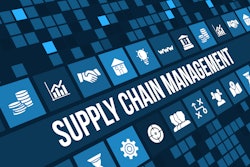
A circular supply chain consists of products and its parts being returned or processed so they can be repaired, resold, refurbished or recycled. It involves minimizing waste, maximizing resources and obtaining resiliency, safety and sustainability. It also comes in many forms, impacting the cold chain in various ways.
Food Logistics talks exclusively with John Reich, scientific program director, Foundation for Food & Agriculture Research (FFAR), about the importance of creating solutions that are efficient and sustainable.
CLICK HERE to read the article in full.
Food Logistics: What are some of the main challenges with regards to building a circular food chain?
John Reich: At the Foundation for Food & Agriculture Research (FFAR) we build public-private partnerships to fund innovative research that addresses challenges like this. Last year, in partnership with the Biosciences team at Schmidt Sciences, FFAR hosted the Feedstocks of the Future Convening, bringing together leading experts in the field to identify challenges and opportunities for a circular U.S. bioeconomy. One of the major challenges identified was determining feasible and economically viable uses for agricultural and food industry feedstocks. Obtaining homogeneous feedstocks that have sufficient quantity to be a feedstock and collecting and processing the feedstocks are some (but not the only) of the challenges. Some of this relates to the supply chain for these feedstocks, as this would need to be developed. Developing new potential products with new potential feedstocks is a first step—scientific solutions must also be scalable.
Food Logistics: What kinds of solutions has your company introduced within the last 12 months that help eliminate food waste, promote sustainable sourcing and more? If your company does not develop solutions, then what solutions do you see as being important for companies to implement?
Reich: FFAR is a research funding organization that works to fund research to solve these problems and develop solutions. FFAR funds in four Priority Areas, one of those being healthy food systems. In this priority area, FFAR has funded research on transforming food waste into products, utilizing food waste donations in food banks, developing decision support tools that guide cities in their decision-making on various tech composting options including where composting facilities should be placed, and how waste enters that specific compost solution.
One very exciting program FFAR is pioneering regarding circular economy is the Virtual Institute on Feedstocks of the Future. One focus of this program is to address the challenge of utilizing heterogeneous feedstocks for the production of a variety of products.
Food Logistics: From your vantage point, what do you consider to be the Top 3-5 key drivers of circular food chains and why?
Reich: There are a few key drivers to creating a circular food chain. One major one being how to make participation in a circular economy economically viable. Some solutions would require longer-term investments to get there and understanding how any solutions can integrate into existing structures and supply chains is also important. Creating solutions that are efficient and sustainable is also important.
Food Logistics: What are some things not addressed above that may be pertinent to our cold food chain readers?
Reich: There may be technologies/knowledge developed for other industries or sectors that could provide insights into how circular food chains could be operationalized. Working with others outside your sector could help make this transformation.
















